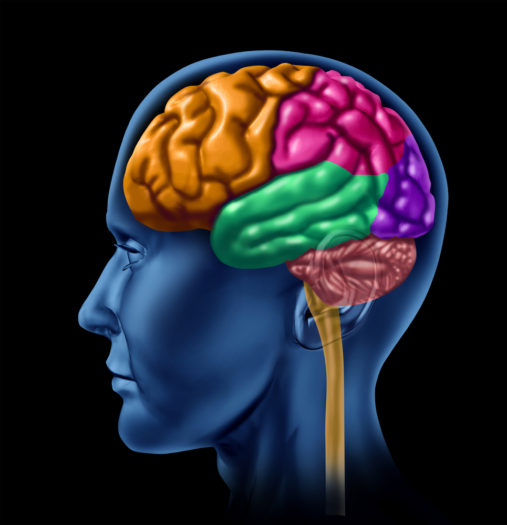 Your brain is the epicenter of your health. A great thinking brain requires a fresh, raw plant, bush, and tree food diet that ensures mental acuity, a razor-sharp memory, and an alert learning system.
Your brain is the epicenter of your health. A great thinking brain requires a fresh, raw plant, bush, and tree food diet that ensures mental acuity, a razor-sharp memory, and an alert learning system.
If we could look back and find the secrets of thinking that great scientists required, we would probably find that these mentally sharp people, entrepreneurs, and inventors ate a very good diet. Present-day researchers, nutritionists, alternative medicine physicians, other physicians, naturopaths, and many teachers are now finding that the diet has a very strong relationship to people’s thinking abilities and mental health. The fortunate thing is that diet and lifestyle also have a very strong relationship with a person’s brain and overall health.
Today, there are over 50 million people in the U.S., Canada, and England that live with mental retardation, dementia, mental decline, or Alzheimer’s disease. Over 60 million suffer from mental deterioration and other mental problems. A large number of these people do not eat a diet that includes raw, fresh plant, bush, and tree foods that help strengthen mental alertness, acuity, and brain function.
The raw, fresh plant, tree, and bush foods contain electromagnetic and bioelectric vibrations that keep your body and brain healthy. They also create a great immune system, healthy heart, body cell energy, brain acuity, and a body organ system that is producing great body metabolism.
There are at least twelve superfoods that are extremely important for keeping a mentally healthy brain, mental acuity, alertness, and a razor-sharp memory. It is very important that while eating a great healthy diet, you must be aware of the worst foods people can eat that destroy their neurons, axons, thought processes, and brain function.

Research into the links between what we eat and our risk of developing dementia is still new, but some foods do have the potential to reduce our risk of developing the condition
Dementia does not all of a sudden show up as a brain disorder, but rather it takes years of a chronic bad diet of acidic, refined, processed, and denatured food to bring the onset of mental retardation. Dementia and Alzheimer’s disease start many decades earlier than when they show up with altered or damaged brain function. It usually begins with an overabundance of a bad non-electromagnetic (dead bioelectric) food diet. These non-electromagnetic foods overwhelm the 2 and ½ to 4 pounds of intestinal biome (gut bacteria) when the 80 (good bacteria) / 20 (bad bacteria) ratio changes in the small intestine. Twenty percent of the bad bacteria colony becomes overwhelmed by a non-bioelectric diet and bad bacteria, causing toxins and inflammation of the gut. Holes (leaky gut) in the very thin gut wall allow bad bacteria, Candida albicans yeast/fungus, other bad molds, bad funguses, tiny food particles, protein particles, and other aliens including parasite larvae to invade the bloodstream. These bad aliens are the cause of over 140 autoimmune and other diseases that invade the body.
Some of the most important non-electromagnetic destructive brain foods to avoid are sugar, sugar derivatives, omega-6 oils bought on the grocery shelf, except extra virgin olive oil, coconut oil, palm oil, and butter. Even extra virgin olive oil if not in a dark container and kept in the refrigerator, will turn into a non-bioelectric oil if it sets at room temperature too long. Other brain-damaging foods to be aware of are white flour products, excess carbohydrates, preservatives, excess alcohol, deep-fried foods, orange juice, processed other juices, red meat, and nitrate-cured meats.
The following super brain foods not only are a great benefit for your brain, but also a great benefit for your whole body health, immune system, blood, organs, and heart. Please don’t forget that EXERCISE is also very important at least 4-5 days (at least 140 minutes) a week.
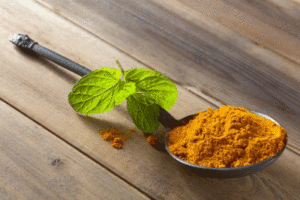 1) Turmeric. Turmeric is also known as curcumin and curry. It is eaten in countries around the world and has scores of great brain and health benefits. Curcumin is the main ingredient of Turmeric. But it is only about 2-3 percent of the total ingredients. That is why many people prefer to buy curcumin supplements. Curcumin is poorly absorbed in your bloodstream, except when an ingredient, black pepper (Pepperdine) is added. Black pepper increases the absorption of curcumin by over 2,000 percent.
1) Turmeric. Turmeric is also known as curcumin and curry. It is eaten in countries around the world and has scores of great brain and health benefits. Curcumin is the main ingredient of Turmeric. But it is only about 2-3 percent of the total ingredients. That is why many people prefer to buy curcumin supplements. Curcumin is poorly absorbed in your bloodstream, except when an ingredient, black pepper (Pepperdine) is added. Black pepper increases the absorption of curcumin by over 2,000 percent.
Curcumin is anti-inflammatory, helping the 80/20 gut ratio and reducing bad bacteria in the gut biome. It is a great anti-oxidant, great for deterring cancer, and kills many bad bacteria (especially in the gut biome). It helps prevent cancer, helps reduce heart disease, and prevents body cell oxidation. One great benefit of curcumin is that it boosts the brain levels of a brain-derived neurotrophic factor in the brain (BDFF). Some researchers say that BDFF improves memory and brain function while helping to reduce depression and Alzheimer’s disease. Another great benefit of BDFF is that it increases the growth of new neurons in the brain, improves memory, and attention. Curcumin with Pepperdine is non-toxic and has scores of other great benefits. Being an anti-oxidant, it adds electrons to non-bioelectric food atoms increasing the Hertz and alkaline (pH) neutral value.
 2) Raw, fresh, green vegetables, fruits, melons, squash, berries, nuts, leaves, stems, bulbs, seeds, legumes, sprouts, whole grains, coconuts, dates, spices, and green vegetable juice.
2) Raw, fresh, green vegetables, fruits, melons, squash, berries, nuts, leaves, stems, bulbs, seeds, legumes, sprouts, whole grains, coconuts, dates, spices, and green vegetable juice.
It is usually not written about but green vegetable juice, green vegetables, other raw fruits, plant, tree, and bush foods act the same in the body as the electric generator in your car. They contain millions of live fresh electromagnetic molecules that supercharge the brain and your body. Many studies have shown that 8 to 12 of these live raw fresh vegetables, fruits, and other raw foods, eaten every day may even help deter and prevent mental dementia and Alzheimer’s disease. They are great for mental alertness, mental acuity, and memory. They are anti-inflammatory and boost the 80/20 good bacteria in the gut biome.
The Gerson Cancer clinic in Mexico has their patients drink 3 or 4 glasses of raw, fresh vegetable juice every day, made from about 20 pounds of mixed vegetables. A preventive glass of this great bioelectric juice not only destroys cancer cells but helps mental acuity and is a great deterrent to mental illness. It creates energy within the whole body. Bioelectric vegetable juice helps the brain, immune system, organs, blood, and even longevity. It is a great anti-oxidant and increases the alkalinity of the gut biome and body.
It is wise every day to eat a good portion of raw vegetables in salads, cooked or steamed lightly, or with other foods. A great boost for health is to add flaxseed oil or other polyunsaturated or monounsaturated oils and vinegar to your salads.
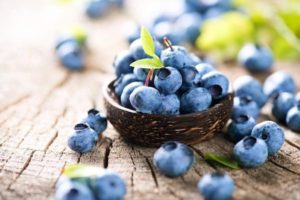 3) Blueberries. If you and your family are not consuming blueberries just about every day, you are missing one of the great polyphenol foods. They are a brain superfood and contain many healthful minerals, vitamins, polyphenols, antioxidants called anthocyanins, phytochemicals, and many other nutrients. Researchers have found that blueberries have a great apoptosis (killing) effect on cancer cells. Eating blueberries may be one of the best preventive foods for brain health, cancer, and many other diseases.
3) Blueberries. If you and your family are not consuming blueberries just about every day, you are missing one of the great polyphenol foods. They are a brain superfood and contain many healthful minerals, vitamins, polyphenols, antioxidants called anthocyanins, phytochemicals, and many other nutrients. Researchers have found that blueberries have a great apoptosis (killing) effect on cancer cells. Eating blueberries may be one of the best preventive foods for brain health, cancer, and many other diseases.
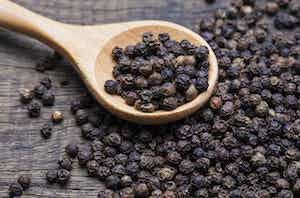 4) Black Pepper. Black pepper contains an ingredient very high in antioxidant properties. It helps lower cholesterol, helps lower blood sugar, is a great colon cancer inhibitor, and helps combat other diseases. It also helps the brain in the formation of phytochemicals for neuron reception. It is especially great if added to curcumin to enhance the resorption of curcumin by over 2,000 percent. Either way, you would be wise to have black pepper on your kitchen table every day.
4) Black Pepper. Black pepper contains an ingredient very high in antioxidant properties. It helps lower cholesterol, helps lower blood sugar, is a great colon cancer inhibitor, and helps combat other diseases. It also helps the brain in the formation of phytochemicals for neuron reception. It is especially great if added to curcumin to enhance the resorption of curcumin by over 2,000 percent. Either way, you would be wise to have black pepper on your kitchen table every day.
 5) Cruciferous vegetables, Raw fresh cabbage, kohlrabi, Brussel sprouts, rutabagas, bot Choy, radishes, watercress, wasabi, turnips, horseradish, broccoli, kale, and collards are all part of the great cruciferous vegetable family. These cruciferous vegetables, raw or lightly cooked, are a great boost for brain health. The group contains many vitamins, minerals, and great soluble fiber. They contain Vitamin B2, B6, folate, A, C, and K, as well as magnesium, potassium, calcium, iron, and selenium. Magnesium plays a role in brain function, sleep, muscle health, mood, and most importantly, is a great preventive cancer fighter. These cruciferous veggies also contain polyphenols, carotenoids, Quercetin, and sulforaphane, which help fight many diseases.
5) Cruciferous vegetables, Raw fresh cabbage, kohlrabi, Brussel sprouts, rutabagas, bot Choy, radishes, watercress, wasabi, turnips, horseradish, broccoli, kale, and collards are all part of the great cruciferous vegetable family. These cruciferous vegetables, raw or lightly cooked, are a great boost for brain health. The group contains many vitamins, minerals, and great soluble fiber. They contain Vitamin B2, B6, folate, A, C, and K, as well as magnesium, potassium, calcium, iron, and selenium. Magnesium plays a role in brain function, sleep, muscle health, mood, and most importantly, is a great preventive cancer fighter. These cruciferous veggies also contain polyphenols, carotenoids, Quercetin, and sulforaphane, which help fight many diseases.
In 2015, researchers at Rush University in Chicago evaluated 950 people. They made a list and had half of them eat many cruciferous foods. Most of the others did not eat any. They found that the people who were eating many cruciferous foods along with other green vegetables reduced mental dementia and/or prolonged it for many years.

The phytochemicals – or antioxidants – in coffee offer some protection against diabetes
6) Coffee and green tea. It is surprising, but scientists are now finding that coffee is healthy food and helps the brain. Coffee is a vasodilator that makes arteries and veins more pliable so they can carry more oxygen to the brain. In a 21-year study on 1500 people in Finland, researchers found that people who drank 2 to 4 cups of coffee per day had over a 52 percent decrease in dementia compared to non-coffee drinkers. A 15-year study on more than 8,000 Japanese people found that drinking 2 to 4 cups of coffee per day had a 20 percent reduced risk of stroke and heart attacks. In other studies, researchers have found that coffee has a beneficial effect on the brain, and is a great deterrent to dementia.
There are some drawbacks when drinking coffee. It can keep some people awake, make others feel hyper from the caffeine, and/or just not taste good to them when the cup is not also filled with lots of coffemate, other sugar additives, and/or sugar.
 Many researchers are researching the benefits of tea. Several studies on tea and its effects on the brain show that it is a great help to the brain. Green tea and honey are associated with cognitive thinking, brain function, deterrence of dementia, and Alzheimer’s disease. Many say it protects brain function and prevents plaque buildup in the arteries and veins in the brain. Other great benefits are that tea is an antioxidant, and the atoms of tea molecules donate electrons to cationic (oxidant) molecules. It also increases the intake of vitamin C and improves immune function. It contains caffeine that helps decrease fatigue, enhances alertness, and improves cognitive thinking.
Many researchers are researching the benefits of tea. Several studies on tea and its effects on the brain show that it is a great help to the brain. Green tea and honey are associated with cognitive thinking, brain function, deterrence of dementia, and Alzheimer’s disease. Many say it protects brain function and prevents plaque buildup in the arteries and veins in the brain. Other great benefits are that tea is an antioxidant, and the atoms of tea molecules donate electrons to cationic (oxidant) molecules. It also increases the intake of vitamin C and improves immune function. It contains caffeine that helps decrease fatigue, enhances alertness, and improves cognitive thinking.
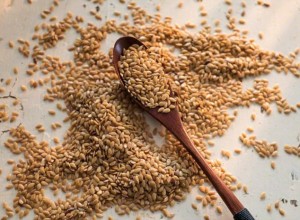
Flaxseeds contains lignans which are the main type of phytoestrogens in the Western diet.
7) Flaxseeds, Chia seeds, pumpkin seeds, sunflower seeds, pistachios, walnuts, pecans, and hemp seeds. These seeds are some of the most compact sources of nutrients that you can eat. It is wise to plan to eat some of these seeds every day. The smaller seeds are much more digested and utilized by CRUSHING THEM in a COFFEE GRINDER. They help boost your brain power and contain great amounts of health-boosting nutrients. They contain omega-3 fats, fiber, and many other unique plant compounds. They also boost the 80% good bacteria in your small intestine, needed for superbrain function.
These seeds are high in antioxidants and contain about 20% protein, 30% carbohydrates, and 40% fats. Most of the carbs are in the form of fiber. Most of them contain calcium, folate, iron, magnesium, B2, B12, beta-carotene, selenium, and omega-3 oils. However, these seeds do not contain as many omega-3 oils as fish oil or cod liver oil. Crushed flaxseeds contain a great omega-3 fatty acid called alpha-linolenic acid (ALA). This is especially great for the brain and the heart.
These seeds improve digestion, help type II diabetes, heart disease, high blood pressure, and deter cancer. They help lower blood pressure, help regulate blood sugar levels, and lower the risk for stroke and heart attacks. Labeled as a superfood, these seeds have to be close to the top of the great nutrients.
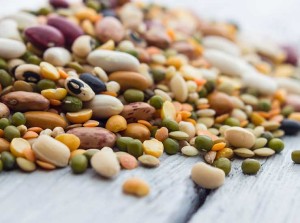 8) Legumes. In a very unique study, researchers from Sweden, Greece, Japan, and Australia formed a research group to research LEGUMES. The legume study involved several variables. The varieties of legumes were peas, lentils, soybeans, beans, chickpeas, and peanuts. The results of the study were better than they had expected. Throughout the study, they found that the more legumes that people ate, the LONGER THAT THEY LIVED. They found that people who ate legumes regularly, had a less mental decline, lived longer, had better brain neurotransmitter function, and neuron function. Legumes have many great vitamins and minerals. They contain B vitamins, magnesium, potassium, foate, iron, and selenium., and many trace minerals.
8) Legumes. In a very unique study, researchers from Sweden, Greece, Japan, and Australia formed a research group to research LEGUMES. The legume study involved several variables. The varieties of legumes were peas, lentils, soybeans, beans, chickpeas, and peanuts. The results of the study were better than they had expected. Throughout the study, they found that the more legumes that people ate, the LONGER THAT THEY LIVED. They found that people who ate legumes regularly, had a less mental decline, lived longer, had better brain neurotransmitter function, and neuron function. Legumes have many great vitamins and minerals. They contain B vitamins, magnesium, potassium, foate, iron, and selenium., and many trace minerals.

Omega-3 polyunsaturated fatty acids found in oily fish have been linked to lowering the risk of breast cancer. Extra virgin olive oil is filled with antioxidants and phytonutrients, staving off cancer
9) Omega-3 fatty acids. Omega-3 fatty acids, especially polyunsaturated and monounsaturated oils should be on your daily list of consumption. Every person should get at least 1 TABLESPOON of these fatty acids every day. They are great for brain and heart function. They keep 80% of good bacteria healthy in your gut biome. They help deter, prevent, and cure many diseases and cancer.
Some of the best Omega-3 poly and mono-unsaturated oils are flaxseed oil, Udo’s choice, northern seed oils, krill oil, cod liver oil, and fish oil. If you do not have any of these oils in your refrigerator now, it would be wise to do so. You and your family all need these oils daily for your brain and body health.

Ellagic acid—found in grapes, raspberries, strawberries, cranberries, pomegranates, black berries, and nuts—exists in even higher concentrations in red wine than resveratrol. Previous studies have shown that EA has potent antioxidant and preventive effects in several types of cancer.
10) Red grapes and red wine. Red grapes are full of polyphenols and other great vitamins and minerals. They are probably a better choice than red wine because red wine loses some of the polyphenols and nutrients that are in red grapes. However, that may be offset by the sugar in grapes, so a person may be better off not eating a great number of grapes at one time. It also may be wise not to drink a great amount of red wine at one time.
Red grapes and red wine help benefit the brain, immune system, help fight and reduce neurogenerative diseases, fight disease, and cancer. Some nutritionists call them a superfood because they are powerful antioxidants (anionic), and contain many nutrients needed for brain and body health. Red grapes contain calcium, iron, folate, magnesium, phosphorus, and potassium. A great benefit of grapes and red wine is that they contain resveratrol, which helps boost neuron and axon conduction in the brain. This enhances learning and memory. Red grapes are a great help for the skin, knee pain, eyes, immune system, and overall health.
 11) Mushrooms. Most people pass by the mushroom section when they shop at the grocery store. If they knew how great the nutrition was in mushrooms, they would always get some for their health.
11) Mushrooms. Most people pass by the mushroom section when they shop at the grocery store. If they knew how great the nutrition was in mushrooms, they would always get some for their health.
You cannot go wrong with shitake and other good-eating mushrooms. In the U.S., Canada, and England, over 200 million people suffer from prediabetes and type II diabetes. It is caused by eating excess sugar, sugar derivatives, excess carbs, and especially white flour products. Mushrooms have nutrients and enzymes that help regulate insulin and hormone production. They help reduce stress and intestinal inflammation. One of the great benefits is that they help the trillions of great gut bacteria, raising the 80 (good bacteria) flora in the small intestine. They reduce inflammation of the gut and help clean the intestinal walls. Mushrooms lower the acidity in the small intestine, are a great alkaline food, and are high in copper and zinc. They also contain sulfur. In the gut, sulfur helps eliminate free radicals (oxidants). Mushrooms help lower bad cholesterol and help control plaque buildup in the arteries and veins. They help lower high blood pressure and help clean out the small and large intestines. Mushrooms are enough of a superfood that to pass them by in the grocery store may be a mistake.
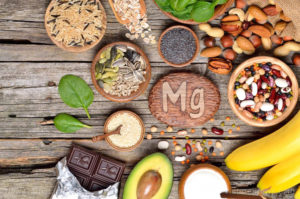 12) Time release vitamin C, D3, Zinc, B2, B6, B12, folate, iodine, magnesium, and calcium when over 55 years old. These are essential vitamins and minerals needed every day for great brain and body health. Vitamins and minerals are great for helping the brain, body, and immune system. Even if you are eating a good diet, extra supplementation is non-toxic and will only increase the benefits of the brain and body. These are disease fighters, and will help with your diet to keep you healthy, wealthy, happy, and wise.
12) Time release vitamin C, D3, Zinc, B2, B6, B12, folate, iodine, magnesium, and calcium when over 55 years old. These are essential vitamins and minerals needed every day for great brain and body health. Vitamins and minerals are great for helping the brain, body, and immune system. Even if you are eating a good diet, extra supplementation is non-toxic and will only increase the benefits of the brain and body. These are disease fighters, and will help with your diet to keep you healthy, wealthy, happy, and wise.
June 12, 2022
~ the Author ~
Merle E. Loudon, B.S., D.D.S. graduated from the University Of Washington School Of Dentistry in 1957. After two years of service in the Air Force, he started a private practice in East Wenatchee, Washington. For the past 45 years his practice has included Orthodontics and TM Dysfunction treatment specializing in temporomandibular pain treatment, headache, head and neck pain control, functional jaw orthopedics, and straight wire orthodontics. Associated with mercury elimination, oral surgery, crowns and bridges is TMJ treatment, diet control, parasite elimination, intestinal cleansing and healing (wellness).
 Merle E. Loudon, B.S., D.D.S. has taught advanced courses for dentists on TM Dysfunction treatment, orthodontics and related pain control for more than 30 years. In 1972 he was the first dentist in Washington to use straight wire orthodontics and the first dentist to correct vertical deficiencies in children by placing vertical dimension-primary molar buildups and/or vertical (erupting) appliances. Merle E. Loudon, B.S., D.D.S. was involved with the first group of dentists to recognize lateral tongue splinting in young infants and integrate functional and fixed techniques to correct vertical dimension deficiencies and condylar placement. He is the originator of vertical dimension-primary molar build ups, which help to correct deep bites and Otitus media in children. He invented the Loudon-Chateau Anterior Repositioning Appliance, the functional muscle malocclusion concept, the twelve commandments of occlusion and the vertical overbite domino rule. Merle E. Loudon, B.S., D.D.S. has written numerous articles in several American and foreign dental journals and has lectured in over 50 cities and 7 foreign countries on functional jaw orthopedics, fixed wire orthodontics, Otitus media treatment and TM Dysfunction treatment. He has been instrumental in setting up criteria for teaching in the International Association For Orthodontics, including the certified instructor program.
Merle E. Loudon, B.S., D.D.S. has taught advanced courses for dentists on TM Dysfunction treatment, orthodontics and related pain control for more than 30 years. In 1972 he was the first dentist in Washington to use straight wire orthodontics and the first dentist to correct vertical deficiencies in children by placing vertical dimension-primary molar buildups and/or vertical (erupting) appliances. Merle E. Loudon, B.S., D.D.S. was involved with the first group of dentists to recognize lateral tongue splinting in young infants and integrate functional and fixed techniques to correct vertical dimension deficiencies and condylar placement. He is the originator of vertical dimension-primary molar build ups, which help to correct deep bites and Otitus media in children. He invented the Loudon-Chateau Anterior Repositioning Appliance, the functional muscle malocclusion concept, the twelve commandments of occlusion and the vertical overbite domino rule. Merle E. Loudon, B.S., D.D.S. has written numerous articles in several American and foreign dental journals and has lectured in over 50 cities and 7 foreign countries on functional jaw orthopedics, fixed wire orthodontics, Otitus media treatment and TM Dysfunction treatment. He has been instrumental in setting up criteria for teaching in the International Association For Orthodontics, including the certified instructor program.
Dr. Loudon is a member of The American Dental Association, Diplomat and Senior Instructor in the International Association for Orthodontics, and is a Diplomat of the American Academy of Pain Management. He also is a member of the American Orthodontic Society.
